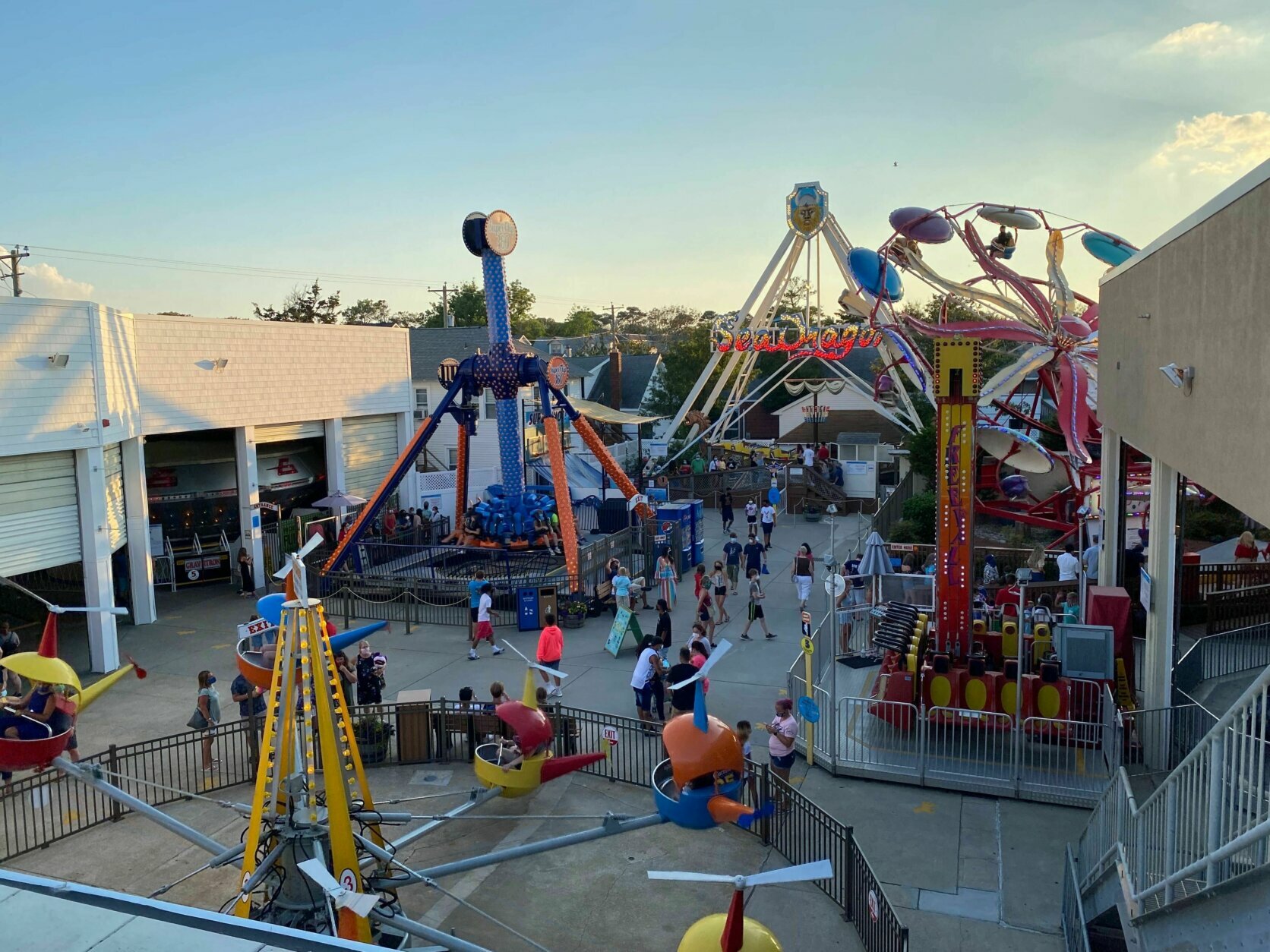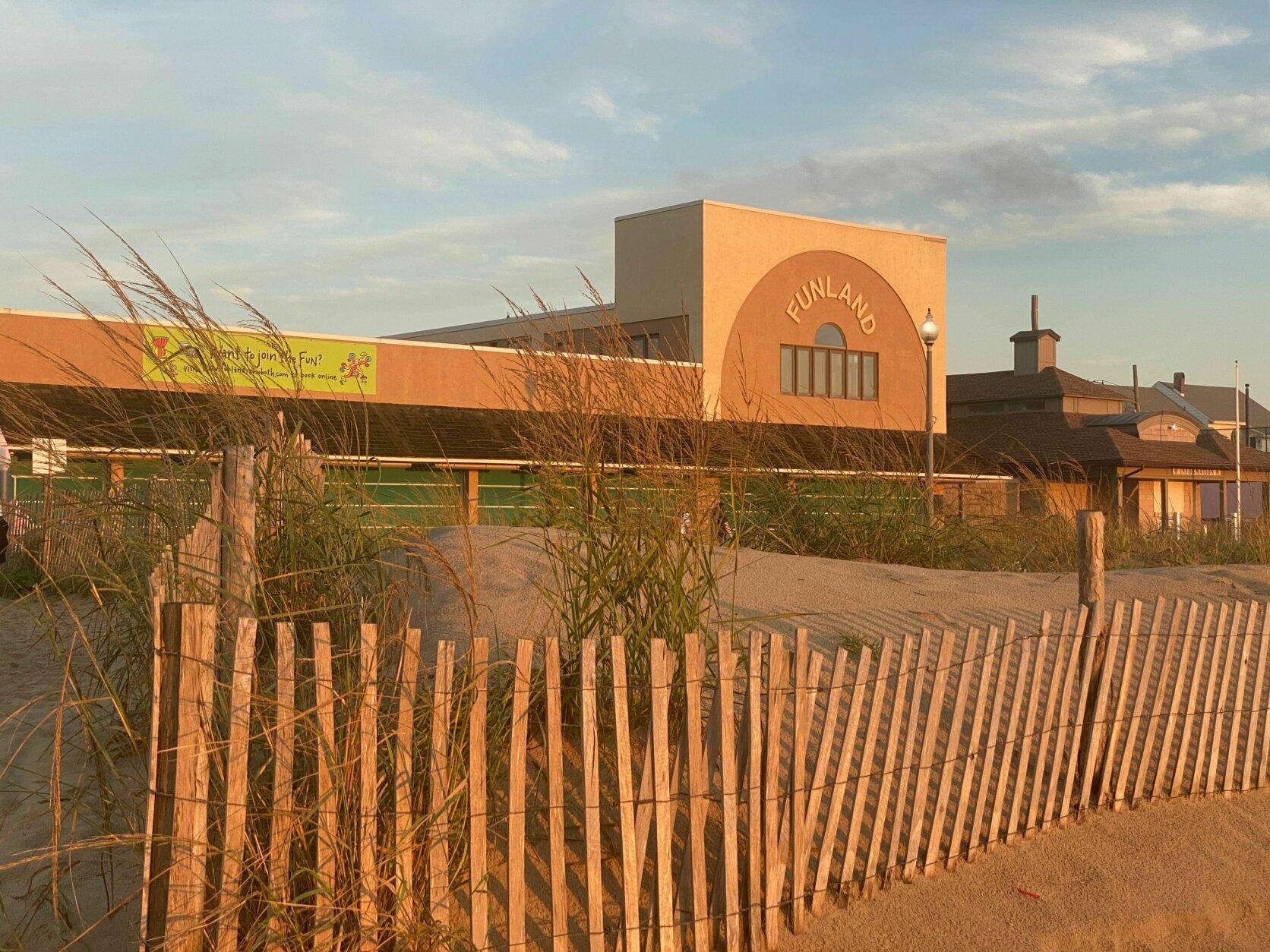



The summer sun usually brings out the masses to Delaware’s beaches and businesses, but this year’s historic low in visitors due to the coronavirus pandemic has left many shops struggling to stay afloat.
“It was the worst Fourth of July ever, and going back to Memorial Day, again the worst Memorial Day ever,” said Thomas Ibach, the owner of Dolle’s Candyland in Rehoboth Beach.
The shelves at Ibach’s store are fully stocked with summer favorites, such as salt water taffy and caramel popcorn, but much of it remains on the shelves as summer comes to a close.
Business at the store is down more than 50%.
A popular stop for beach-goers for a bite is Thrasher’s French Fries in Rehoboth Beach, but this year Dean Shuttleworth said a similar story is playing out at his locations.
“We are better than some, maybe worse than others,” said Shuttleworth.
Also in Rehoboth, instead of crowds packed shoulder-to-shoulder, Chris Darr, the personnel manager at Funland, said they are only opening at less than 20% capacity, which has had a dramatic impact in revenue.
“From a financial standpoint, we’re in a survival mode,” said Darr, who is a member of the family that has owned the attraction for generations.
While day visitors are helping, the businesses highly depend on affluent visitors who are not coming. These are the vacationers who rent homes or get hotel rooms, and come prepared to spend during weeklong getaways to the beach.
“Because they’re not here, we have a lot more people coming in, dragging coolers in, they don’t spend money here,” Ibach said.
While the number of people reserving hotel rooms continues to inch up, compared to last year numbers have taken a nosedive.
From the beginning of the year through Aug. 23, both Rehoboth and Dewey beach hotels combined have weekend occupancy rates down by more than 31,000 stays compared to last year ,according to the Rehoboth Beach‐Dewey Beach Chamber of Commerce.
Weekday stays are down by more than 18,000 room reservations.
A staffing shortage
Compounding the problem is some businesses are also suffering a staffing shortage.
For help during the busy summer months, many shops and restaurants have relied on foreign workers with J-1 visas to fill seasonal positions. With those visas being suspended by the U.S. government in June due to COVID-19, that help is not available.
“Unfortunately, there hasn’t been enough Americans to hire because there are so many businesses on Route 1 and in Rehoboth,” said Shuttleworth.
The lack of people to hire resulted in Shuttleworth not opening one of his three locations.
For Ibach, he said he’s trying to keep running with only seven employees because even after posting available positions, he can’t get the 15 employees he hoped for during this very slow season.
“We’re so understaffed it’s not even funny. I have not had a day off since April,” Ibach said.
At Funland, Darr said they’ve been okay when it comes to staffing numbers, but as younger employees begin returning to school in the coming weeks, there is concern about a possible employee shortage.
“Without that J-1 visa crew that’s here, they’re filling spots that we can’t fill otherwise,” Darr said.
High-risk states lists
At times, Delaware has found itself labeled as a high-risk destination by D.C. and several other states over the past several weeks.
Most recently, D.C. placed the state back on its list before abruptly removing it after speaking with officials in the state.
Darr said when Delaware shows up on the lists, they get calls from people in those locations who don’t want to quarantine for 14 days after getting home.
“We’ve had some cancellations because of that,” Darr said.
For Ibach, he does believe the candy store took a hit because of the lists when they first came out, but as time went on, the lists didn’t appear to have the same impact on people’s decisions to visit the beach.
“I think people are just fed up with it, and I think if they’re going to come to the beach, they come to the beach. But they don’t come the way they used to,” Ibach said.
Businesses in survival mode
For Funland, they have been able to open, but Darr said the current operating model, which involves limiting guests, cannot be long-term.
“It’s by no means a sustainable model at the numbers we’re allowing into the park for multiple years,” Darr said.
At Thrasher’s, Shuttleworth said the current setup with COVID-19 precautions, which involves serving one person at time, has dramatically slowed down service.
“We’re not able to move our lines as fast, which also kind of hinders how much revenue we can bring in in one day,” Shuttleworth said.
Ibach said in speaking with other business owners, there are concerns that close to 40% of businesses along the beach may not return next season. For the Dolle’s Candyland owner, a small business loan from the Small Business Administration is what is keeping his rent up-to-date for this season.
“Had we not been able to do that, I wouldn’t be talking to you here,” Ibach said.
Hope for the future
The pandemic’s impact has been something that none of the businesses could have planned for or expected.
“Not in my wildest dreams,” Ibach said. “This is something you watch on TV in a movie; this not something you experience.”
While Ibach said he has written off 2020, Shuttleworth said he is hopeful that with many students learning online, many parents may still choose to bring their families to the beach.
“That they bring their families here and do their online schooling here and still get to enjoy the beach and everything Rehoboth has to offer,” Shuttleworth said
Darr said he is hopeful for more people coming to ride the rides at Funland before it closes for the season in September, but he is also happy the attraction was able to open this year at all.
“We now know that we have a model that we can use even if we are dealing with COVID in the spring again, where we are not totally shut down in the spring, and we can probably have a more successful season,” Darr said.
- Sign up for WTOP alerts
- Latest coronavirus test results in DC, Maryland and Virginia
- Small businesses in college towns struggle without students
- DC removes Delaware from high-risk state list following new data
- As virus rages, US economy struggles to sustain a recovery
Looking for more information? D.C., Maryland and Virginia are each releasing more data every day. Visit their official sites here: Virginia | Maryland | D.C.








